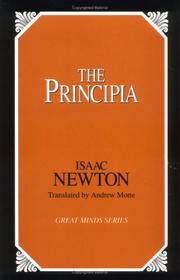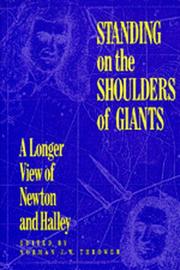| Listing 1 - 10 of 54 | << page >> |
Sort by
|
Book
Year: 1991 Publisher: London Quaritch
Abstract | Keywords | Export | Availability | Bookmark
 Loading...
Loading...Choose an application
- Reference Manager
- EndNote
- RefWorks (Direct export to RefWorks)
Book
Abstract | Keywords | Export | Availability | Bookmark
 Loading...
Loading...Choose an application
- Reference Manager
- EndNote
- RefWorks (Direct export to RefWorks)

ISBN: 9780879759803 0879759801 Year: 1995 Publisher: Amherst: Prometheus,
Abstract | Keywords | Export | Availability | Bookmark
 Loading...
Loading...Choose an application
- Reference Manager
- EndNote
- RefWorks (Direct export to RefWorks)

ISBN: 0520065891 Year: 1990 Publisher: Berkeley Los Angeles Oxford University of California Press
Abstract | Keywords | Export | Availability | Bookmark
 Loading...
Loading...Choose an application
- Reference Manager
- EndNote
- RefWorks (Direct export to RefWorks)
Book
ISBN: 0198539371 9780198539377 Year: 1989 Publisher: Oxford: Oxford university press,
Abstract | Keywords | Export | Availability | Bookmark
 Loading...
Loading...Choose an application
- Reference Manager
- EndNote
- RefWorks (Direct export to RefWorks)
Science --- Physicists --- Newton, Isaac, - Sir, - 1642-1727

ISBN: 0198517440 9780198517443 Year: 1995 Publisher: Oxford: Clarendon,
Abstract | Keywords | Export | Availability | Bookmark
 Loading...
Loading...Choose an application
- Reference Manager
- EndNote
- RefWorks (Direct export to RefWorks)
Book
ISBN: 1526740575 1526740559 9781526740557 1526740540 9781526740540 Year: 2019 Publisher: Havertown : Pen & Sword Books Limited,
Abstract | Keywords | Export | Availability | Bookmark
 Loading...
Loading...Choose an application
- Reference Manager
- EndNote
- RefWorks (Direct export to RefWorks)
Isaac Newton was accorded a semi-divine status in the 18th and 19th centuries, whereby his image linked together religion and science. The real human being behind the demi-god image has tended to be lost. He was a person who took credit from others, and crushed the reputations of those to whom he owed most. This most brilliant of mathematicians could alas be devious, deceptive and duplicitous. This work doesn't go looking at unpublished alchemical musings as is nowadays fashionable, rather it sticks to the historical record. At the time when the new science was born, we scrutinize the ways in which he failed to discover the law of gravity or invent calculus. What exactly did Leibniz mean by describing him as 'a mind neither fair nor honest'? Why did Robert Hooke describe him as 'the veriest knave in all the house' and why was the astronomer Flamsteed calling him SIN (Sir Isaac Newton)?We are here concerned to give him credit for what he did discover, which may not be quite what you had been told. This book redefines the genius of Isaac Newton, but without the heavily mythologised baggage of a bygone era. He believed in one God, one law and one bank.
Newton, Isaac, Sir, 1642-1727 --- Mathematicians --- Great Britain --- Biography & Autobiography --- Newton, isaac, sir, 1642-1727 --- Great britain --- Biography & autobiography
Book
ISBN: 2100487396 9782100487394 Year: 2005 Publisher: Paris: Dunod,
Abstract | Keywords | Export | Availability | Bookmark
 Loading...
Loading...Choose an application
- Reference Manager
- EndNote
- RefWorks (Direct export to RefWorks)
Nous savons de Newton qu'il fut celui qui découvrit la gravité, grâce au fameux mythe de la pomme tombée de l'arbre, propagé malicieusement par Voltaire. Nous savons moins quelle fut sa vie et c'est là le propos de James Gleick : nous faire mieux connaître ce génie qui s'intéressa à la fois aux mathématiques, à la physique et à l'astronomie. Au-delà d'un portrait historique, Gleick décortique l'abondante correspondance et les nombreux carnets non publiés de Newton pour souligner l'importance de ses travaux dans le domaine de la physique, de l'optique et de l'arithmétique, mais aussi de la théologie et de la philosophie.Il s'intéresse également à la personnalité et aux conflits intérieurs de l'homme : ses idées, ses ambitions, mais aussi sa discrétion, sa solitude, son refus des critiques, brossant ainsi un portrait à la fois fidèle et chaleureux de celui qui est à l'origine de la conception moderne du monde.« Dans un style clair, concis et ne manquant pas de poésie, Gleick nous donne ici une superbe biographie condensée d'un des génies les plus incontestés de la science et une de ses figures les plus troublantes. » Extrait de la préface de Trinh Xuan Thuan
Physiciens --- Newton, Isaac, --- Physicists --- Newton, Isaac --- Physiciens - Grande-Bretagne - Biographies --- Newton, Isaac, - Sir, - 1642-1727
Book
ISBN: 2738105513 2738105513 9782738105516 Year: 1998 Publisher: Paris: Odile Jacob,
Abstract | Keywords | Export | Availability | Bookmark
 Loading...
Loading...Choose an application
- Reference Manager
- EndNote
- RefWorks (Direct export to RefWorks)
Digital
Year: 1718 Publisher: London Printed by G. Parker and sold by John Morphew ...
Abstract | Keywords | Export | Availability | Bookmark
 Loading...
Loading...Choose an application
- Reference Manager
- EndNote
- RefWorks (Direct export to RefWorks)
| Listing 1 - 10 of 54 | << page >> |
Sort by
|

 Search
Search Feedback
Feedback About UniCat
About UniCat  Help
Help News
News